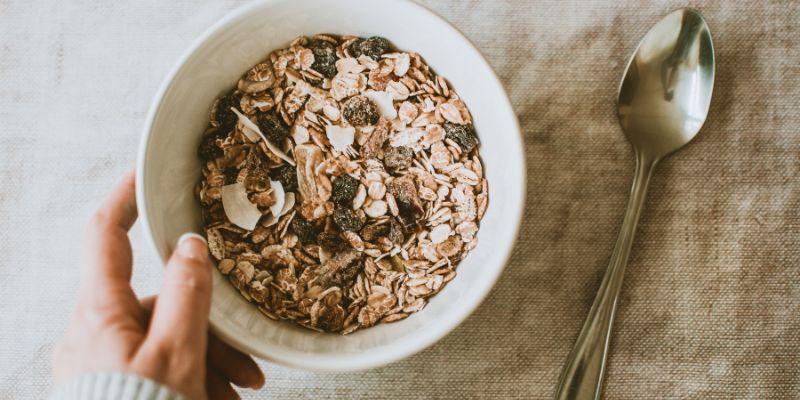Laugh and Be Thankful: Why It's Good for Your Heart and Well-Being
Two easy but effective instruments for your health are laughter and thanks. Many people forget how these feelings affect their physical condition. Laughing releases tension and improves attitude. Thank you helps you see life differently. Your heart will benefit from both thankfulness and laughter. Studies find that thankfulness and laughing help to lessen heart-related risks and stress. Laughing helps your body to relax and works your heart.
Being grateful helps you to develop a good attitude that can also boost the operation of your heart. This guide will teach you why gratitude and laughter are not only healthy for your attitude. It also benefits your heart. Let's investigate how these little routines could help you be healthier.

The Physical Benefits of Laughter
Laughing gives your heart a brief increase in activity and functions as a small workout. Laughing raises your heart rate, so strengthening the heart muscles aligns with light aerobic exercise. Your heart rate decreases, and your muscles release after the laughing stops. That makes one feel well and relieved. Also, laughing helps improve blood circulation, which is essential for cardiovascular health. Good circulation guarantees efficient distribution of oxygen and nutrients throughout your body, so maintaining the normal operation of your heart. By keeping good blood flow and general heart performance, regular laughter can even provide defense against heart ailments.
Moreover, laughing helps lower cortisol, the hormone produced under tension. Elevated cortisol levels can lead to high blood pressure, weight gain, and other cardiovascular issues. Laughing lowers cortisol levels, making your body calmer and more relaxed. Less strain on your heart and a lower risk of long-term cardiovascular problems follow. Laughter is a basic yet effective instrument for preserving general well-being and a heart condition.
How Gratitude Benefits Your Heart?
Not only can gratitude make you feel good emotionally, but it also provides physical health advantages, particularly for your heart. Studies find that those who routinely express thanks often have better hearts. Being grateful helps one have a good attitude, reduces stress, and improves cardiovascular condition. When you appreciate, your heart releases less tension and strain, helping reduce blood pressure and enhance general heart performance. This good emotional condition motivates improved lifestyle choices like more exercise, a diet of healthy foods, and developing social contacts.
Grateful people are more inclined to prioritize health and well-being and follow practices encouraging a robust and healthy heart. These behaviors, therefore, help increase resilience and lifespan. Emphasizing thanks improves your mental state and guards your cardiovascular system. A grateful attitude is a straightforward, effective approach to maintaining a more balanced existence and a better heart.
Simple Ways to Incorporate Laughter and Gratitude into Daily Life
Here is how to incorporate laughter and gratitude into your daily life:
- Start a Gratitude Journal: List three things you are glad about every day. It might be a sunny day, good health, or a friend's encouragement. Emphasizing positive things helps your brain to value the wonderful events of life. A thank-you diary helps you change your perspective from negative to positive. This change can help your mental health, lower stress, and promote heart function.
- Practice Mindfulness and Meditation. Mindfulness and meditation are powerful instruments for bringing laughter and gratitude into your life. When you meditate, pay close attention to the here and now. Recognize your strengths and consider your experiences from a positive standpoint. See good results and show deep thankfulness in meditation. These techniques help your heart, lower tension, and quiet your thoughts.
- Spend Time with Positive People: Surround yourself with joyful and positive individuals. Good relationships make one happy and supported. Laughing and enjoying special events with pals helps develop emotional ties. Good social contacts also imply help under trying circumstances. These relationships help you be resilient and have a good attitude, safeguarding your heart condition.
- Engage in Physical Activity: Often, hand in hand, they laugh and exercise. Activities involving dance, athletics, or friend walking create motion and laughter. Physical exercise increases general wellness and strengthens your heart. When you work out, your body produces endorphins, hormones that boost your mood. Working out among friends brings a social component and promotes thankfulness and laughter.
- Laugh More Often: Search your everyday life for humor. See a funny movie, pick up an amusing book, or hang out with pals that get you to chuckle. Laughing is contagious; surrounding others who joke and smile can help you get happier. Try laughter exercises or go to laughing yoga classes. Your body reacts positively even from a false laugh. Your heart gains from laughter more the more of it you do.

Studies Proving the Link Between Laughter, Gratitude, and Heart Health
Scientific studies repeatedly show strong links between laughing, thankfulness, and heart health. In studies, regular laughter has been linked to a reduced risk of heart problems. Like light aerobic exercise, laughter increases blood circulation and tones cardiac muscles. Studies on gratitude also show notable effects on heart disease. Those who are grateful typically have lower blood pressure, better total cardiac measurements, and lower cholesterol. By lowering mental and emotional stress, practicing thanks helps one sleep better, experience less anxiety, and enter a more calm state of mind.
These advantages help to lower the risk of chronic cardiovascular problems and improve the heart. Studies indicate that maintaining a good emotional state through laughter and thankfulness may protect against chronic diseases. This proactive strategy enhances general well-being in addition to heart condition. Regular laughter and thanks will help you to improve your quality of life and guarantee a more balanced, fulfilling lifestyle and a stronger heart.
Conclusion:
Laughter and gratitude are powerful tools for maintaining a healthy heart and well-being. Laughing provides a mini workout for your heart, strengthens muscles, and improves circulation. Gratitude fosters a positive outlook, reduces stress, and encourages healthy habits. Scientific studies support the benefits of both laughter and thankfulness in preventing heart diseases and boosting cardiovascular health. By incorporating simple routines like laughter exercises, gratitude journals, and social connections, you can protect your heart and improve your quality of life. Embracing these practices leads to a stronger, healthier, and more balanced existence.











